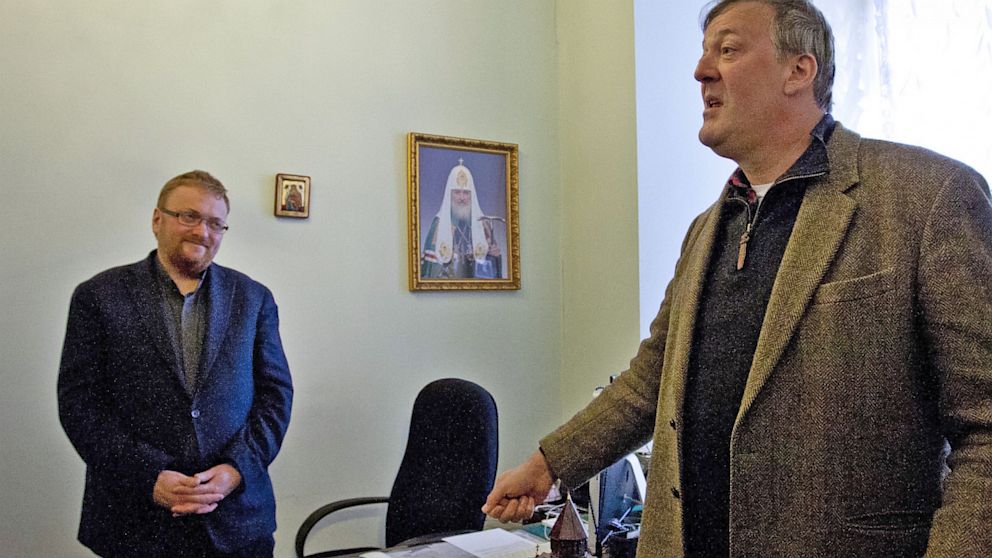Gay Athletes Could Be Prosecuted at 2014 Winter Olympics, Russian Lawmaker Suggests
The International Olympic Committee is cautiously optimistic.

MOSCOW July 31, 2013 — -- In Russia it is now illegal to even speak about homosexuality around minors, much less openly display gay pride. Technically the ban is against "propaganda of nontraditional sexual relations" around minors, but the implication for openly gay individuals is clear. Public displays of affection by gays, including holding hands or displaying symbols like a rainbow flag, are now banned. Violators face steep fines and jail time; foreigners face similar penalties plus deportation.
So what will happen to openly gay athletes and fans, as well as any vocal supporters or protestors, when Russia hosts the Winter Olympics next year in Sochi?
This week, comments by a lawmaker from St. Petersburg set off a firestorm online when he said that fans and athletes would not be immune from prosecution during the games.
Vitaly Milonov, who sponsored legislation in St. Petersburg last year that became the basis for a national law signed by President Vladimir Putin in June, was quoted telling the Interfax news agency that the law will remain in place during the Olympics and will be applied to foreigners.
"If a law has been approved by the federal legislature and signed by the president, then the government has no right to suspend it. It doesn't have the authority," he reportedly said, stressing that he has not heard anything different from Russian officials.
It is worth noting, however, that Milonov is only a regional lawmaker and is not a member of the federal government or the national legislature. But he has been on the forefront of Russia's war against homosexuality. Last summer he threatened to fine pop star Madonna for violating the law after she spoke out against it from the stage during a concert in St. Petersburg.
The International Olympic Committee appears only cautiously optimistic that the games will be safe for gay athletes and fans, noting that it has sought assurances from Russian authorities.
"This legislation has just been passed into law and it remains to be seen whether and how it will be implemented, particularly as regards the Games in Sochi," the IOC said in an emailed statement to ABC News.
"The IOC has received assurances from the highest level of government in Russia that the legislation will not affect those attending or taking part in the Games," the statement continued.
The IOC said it continues to urge that the games "take place without discrimination against athletes, officials, spectators and the media."
The U.S. Olympic committee recently sent a letter to American athletes warning them about the law, but stressing, "We do not know how and to what extent they will be enforced during the Olympic and Paralympic Games."
The USOC says they are doing what they can to ensure the safety of all Americans at the Games.
"We are aware of these laws and are engaged in active discussions with the International Olympic Committee and the US State Department about how we can ensure that every American in Sochi, especially our athletes, are safe and secure," the letter continues.
At least one athlete, openly gay New Zealand speed skater Blake Skjellerup, has already pledged to wear a rainbow pin during the games.




